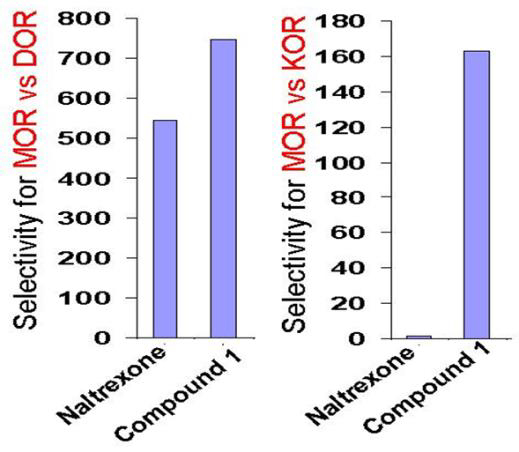Biomedical
Novel, Selective and Potent Mu Opioid Receptor Antagonists for the Treatment of CNS Disorders
The technology
Market need
Drug/alcohol abuse and dependence are major problems in today’s society. The analgesic effects and addiction/abuse liability of several opiates and alcohol can be mediated via the mu opioid receptor (MOR) that are prevalent in the central nervous system and have also been implicated in modulating immune function and in the treatment of obesity, psychosis and movement disorders such as Parkinson’s disease. Naltrexone is an opioid receptor antagonist that is currently being used to manage drug and alcohol addiction. However, Naltrexone has low selectivity for the mu opioid receptor and has also been known to cause a variety of side effects due to its high affinity to the delta (DOR) and kappa (KOR) opioid receptors. Hence, there is a need for the development of highly selective and potent mu opioid receptor antagonists.
Technology summary
Researchers at VCU have designed and synthesized several novel ligands that are potent and highly selective mu opioid receptor antagonists. In vitro and in vivo studies using the lead agent “Compound 1” have shown that it is highly selective in binding the mu opioid receptor versus other opioid receptors and is a potent antagonist to the effects of morphine. Compound 1 can be developed further for use in the treatment of drug and alcohol dependence as well as other human conditions where mu opioid receptors have been implicated.

Technology status
In vitro and in vivo studies have been performed.
